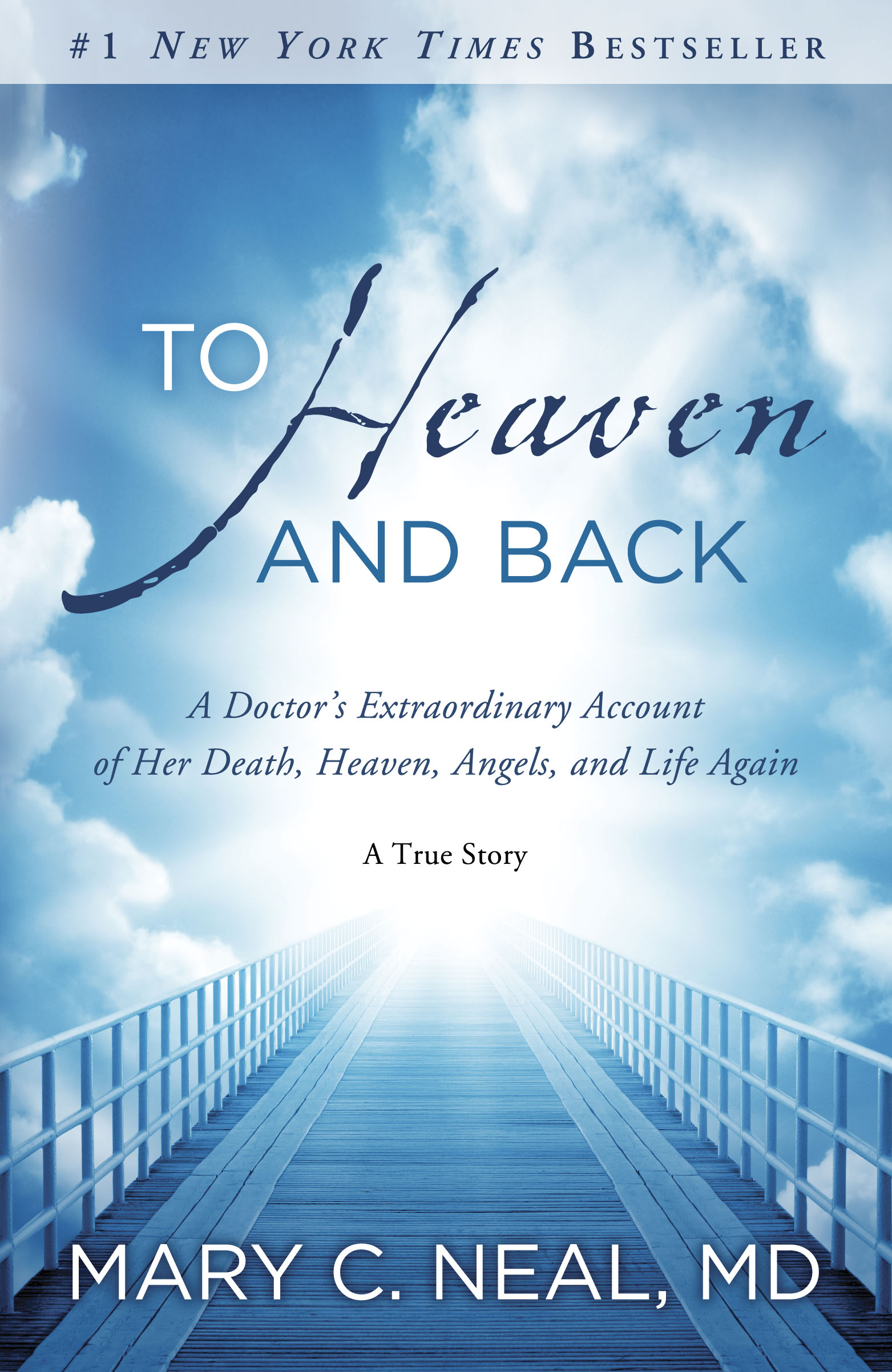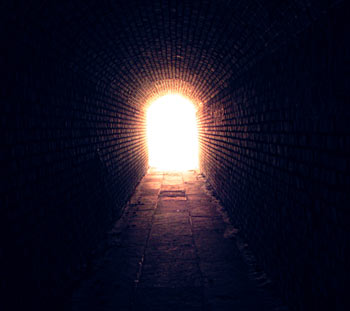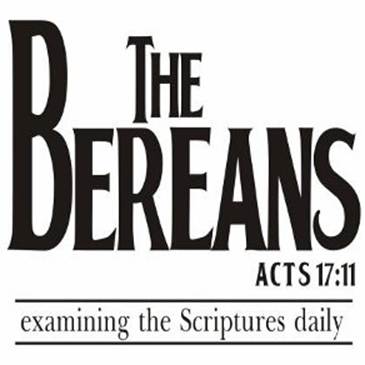 This blog and the one that follows will be full-length articles. I do this rarely, but I believe some of the issues at stake are very important, and far larger than just one particular book.
This blog and the one that follows will be full-length articles. I do this rarely, but I believe some of the issues at stake are very important, and far larger than just one particular book.
After its release two months ago, I guessed Mary Neal’s book To Heaven and Back would become an influential bestseller like its predecessors, so I read it. Sure enough, it has remained #1 in the “Paperback Advice & Miscellaneous” category of the New York Times Bestsellers List for nine weeks.
Last year I blogged about Heaven is for Real and 90 Minutes in Heaven. I wrote that though these books don’t have the authority of Scripture, I am grateful that authors Don Piper and Todd Burpo uphold the gospel. Many who report after-death experiences do not.
For decades I’ve read accounts in which people who do not know Christ claim to have gone to Heaven and were reassured by a “being of light” that all is well. In some cases they’ve been “sent back” to earth to bring the message that people have nothing to fear because a loving God will send everyone to Heaven.
The Bible clearly states that those who do not trust Jesus for their salvation have great reason to fear death, and the Hell that follows (Luke 12:5). To claim otherwise is to preach a false gospel, which is exactly what some “I came back from Heaven” books do.
I’m convinced that though some have had real supernatural experiences, the one who reassured them was not Jesus. “For such men are false apostles, deceitful workmen, disguising themselves as apostles of Christ. And no wonder, for even Satan disguises himself as an angel of light. So it is no surprise if his servants, also, disguise themselves as servants of righteousness” (2 Corinthians 11:13-15).
But what about all the I-went-to-heaven books written by true Christians? Even some of those contain doctrinal errors. Mary Baxter’s once bestselling books A Divine Revelation of Heaven and A Divine Revelation of Hell, for example, both present some outrageously unbiblical ideas which must be rejected by discerning Christians who are students of Scripture (for specifics, see my previous blog).
 Okay, on to Mary C. Neal’s book To Heaven and Back: A Doctor’s Extraordinary Account of Her Death, Heaven, Angels, and Life Again. Because it’s from a Christian publisher, I hoped it would not contradict Scripture. Unfortunately, some of it does. Because I respect this publisher, and enjoy good relationships with their employees, I sent them a draft of this blog and asked them to respond. I will do a follow-up blog on Friday, presenting the points they made, some that I agree with, some that I don’t.
Okay, on to Mary C. Neal’s book To Heaven and Back: A Doctor’s Extraordinary Account of Her Death, Heaven, Angels, and Life Again. Because it’s from a Christian publisher, I hoped it would not contradict Scripture. Unfortunately, some of it does. Because I respect this publisher, and enjoy good relationships with their employees, I sent them a draft of this blog and asked them to respond. I will do a follow-up blog on Friday, presenting the points they made, some that I agree with, some that I don’t.
I’ve never met Mary Neal. She strikes me as sincere and intelligent. I do not question Mary’s honesty or her love for Christ. And I don’t reject anything she says on the basis that she claims to have had a supernatural experience. I believe in a supernatural God who still does miracles today. But just as any claim to a supernatural experience should not be automatically dismissed, neither should it—or any truth-claims related to it—be undiscerningly embraced. I am not attacking the author, I am simply expressing honest disagreement with some—not all—of the things she says. (Every book is fair game for honest evaluation. My books have received their share of criticism, but I appreciate it most when people are even-handed and kind, as I seek to be here.)
Mary Neal writes,
I drowned while kayaking on a South American vacation and had the great pleasure, privilege, and a gift of going to heaven and back. I had the opportunity to converse with angels and ask many questions. I gained much insight. (xvii)
I rose up and out of the river, and when my soul broke through the surface of the water, I encountered a group of fifteen to twenty souls (human spirits sent by God), who greeted me with the most overwhelming joy I have ever experienced and could ever imagine. (68-69)
…I knew each of them well, knew they were from God, and knew that I had known them for an eternity. (69)
I was having a “conversation” with an angel who was sitting on a nearby rock. I call the being an angel, but I don’t really know what he was: angel, messenger, Christ, or teacher. I do know that he was of God, in God, and from God. As we conversed, I asked questions, and he gave me answers. …During this conversation, I received the following wisdom.
Reading the Apostle John’s response to seeing the glorified Jesus in Revelation 1:12-18 suggests that anyone seeing him would likely be certain. But whoever the person was, the following doctrine is said to have been expressed by someone “of God, in God and from God”: “We are each given the opportunity and privilege to come to earth for different reasons. In preparation for our journey to earth…” (97-98)
Later, the author says,
I need to categorically state, once again, that I believe very young children clearly remember where they came from and are still quite connected to God’s world. I believe they easily recall the images, knowledge, and the love of the world they inhabited before their birth. I believe children may still be able to see angels… As young children become more engaged with the world, the memories fade and they begin their personal journey…of finding their way back to God. (147-148)
In these excerpts Mary Neal affirms the pre-existence of the human soul, the idea that people do not come into being at conception in their mother’s womb, but already exist in Heaven before coming to earth. She says that children do not come into existence in a state of alienation from God, but in relationship with Him, in Heaven. Then they come to earth, hopefully later “finding their way back to God.”
The notion that we began as righteous people living in relationship with God is radically different than what the Bible tells us. Our fundamental problem is not our bad memory about originally having lived in Heaven. Rather, it is our sinfulness that has alienated us from God. “Surely I was sinful at birth, sinful from the time my mother conceived me” (David, in Psalm 51:5).
The unbiblical doctrine of pre-existence, the same one presented in To Heaven and Back, is taught by the Mormon Church:
“We were first begotten as spirit babies in heaven and then born naturally on earth” (Journal of Discourse, Vol. 4, p. 218).
“Life for you did not begin here on earth. You lived before you were born; you will live on in the spirit world after your mortal life is ended.” “We all once lived in the presence of God the eternal father. In the world before you were a spirit child of his. With this divine parentage, your destiny, through righteous living, is to become like your Father in Heaven and return to his presence” (The Mormon Purpose of Life Pamphlet handed out at the Temple on BYU campus).
“In your life before birth, before the earth was created God presented a plan to his children for their advancement. You were free to accept or reject this plan of salvation. Those spirit children who accepted his plan were given the opportunity to live on earth; those who rejected his plan were not privileged to enter mortality” (Mormon Purpose of Life Pamphlet). [See more on this at http://letusreason.org/LDS24.htm]
The Bible disagrees (each passage is followed by my comment):
Then the Lord God formed the man of dust from the ground and breathed into his nostrils the breath of life, and the man became a living creature (Genesis 2:7).
Adam didn’t come from Heaven to earth, but was created on earth, from the earth. That we all sinned in Adam is a Bible doctrine dependent on the fact that we come from Adam, not from elsewhere, and certainly not from Heaven (Romans 5:12-21).
But it is not the spiritual that is first but the natural, and then the spiritual. The first man was from the earth, a man of dust; the second man is from heaven. As was the man of dust, so also are those who are of the dust, and as is the man of heaven, so also are those who are of heaven. Just as we have borne the image of the man of dust, we shall also bear the image of the man of heaven (1 Corinthians 15:45-49).
Note that not only was the first man from the earth, but so are all other people. Only Christ is “from heaven.”
He who comes from above [Jesus] is above all. He who is of the earth belongs to the earth and speaks in an earthly way. He who comes from heaven is above all. (John 3:31).
Christ alone came to earth from Heaven; other human beings do not.
Jesus said to them, “You are from below; I am from above. You are of this world; I am not of this world (John 8:23).
The teaching that we too came to earth from Heaven undercuts the uniqueness of Christ’s claim to be the only human who has done this.
To Heaven and Back mentions several churches Mary Neal has attended. But her affirmation of the strange doctrine of pre-existence made me wonder how much she has been influenced by Mormonism. (Her publisher informed me that Mary is part of a Reformed church and has no connection with Mormonism; see my upcoming Friday blog.)
In her book, Neal speaks of a prophetic word from a Mormon bishop to a “spiritually devoted” Mormon patient:
Unbeknownst to me, my patient and his wife had visited with their Latter-Day Saints bishop prior to this surgery and had received blessings from him…. He told my patient that God was very pleased with him, that the veil between this world and the next would be very thin, and that he would be required to make a choice….Before surgery, my patient and his wife had discussed together their interpretation of these blessings. They had concluded that my patient would have to choose between continued life on earth or physical death. They were both spiritually devoted and knew that my patient would choose God. (139)
Mormon doctrine denies Christ’s deity, his virgin birth and his substitutionary atonement, and a long list of central biblical doctrines. (For a summary of Mormon doctrines and their biblical refutations, see this website or this article.)
I am not saying Mary Neal believes or advocates other false doctrines held to by the Mormon Church. But certainly she believes and tries to persuade readers of pre-existence.
Decades ago Mormon Betty Eadie, in her mega-selling Embraced by the Light, wrote of her after-death experience. The book spent a year and a half at number one on the NYT bestsellers list, and sold 13 million copies. Eadie wrote,
I knew that I had known him [Christ] from the beginning, from long before my Earth life, because my spirit remembered him.
…I understood that he was the son of God, though he himself was also a God…I understood, or rather, I remembered, his role as creator of the Earth. …Things were coming back to me from long before my life on Earth, things that had been purposely blocked from me by a "veil" of forgetfulness at my birth….I saw that in the pre-mortal world we knew about and even chose our missions in life.
I remembered the creation of the Earth…. the only way to do that was for me to view it again and feel what I had felt before.
…I was actually relieved to find that the Earth is not our natural home, that we did not originate here. I was gratified to see that the Earth is only a temporary place for our schooling and that sin is not our true nature. …because of our divine, spiritual nature we are filled with the desire to do good.
We watched as our spirit brothers and sisters entered physical bodies for their turns upon the Earth, each experiencing the pains and joys that would help them progress.
 Of course, Mary Neal has no responsibility for Betty Eadie’s unbiblical statements. But pre-existence is emphasized by both.
Of course, Mary Neal has no responsibility for Betty Eadie’s unbiblical statements. But pre-existence is emphasized by both.
In To Heaven and Back, Mary Neal speaks clearly of her own conversion, which I don’t question. But I didn’t see any clear presentation of the gospel. There’s nothing about the depths of our sin and separation from Christ, and the need to repent and place our faith in Christ the God-Man and his redemptive work on the cross in order to go to Heaven. The book seems to encourage readers not to fear death. But if someone doesn’t know Christ as Savior, then according to Scripture death is the doorway to Hell, not Heaven. If this is in To Heaven and Back, I missed it.
There are other problems in the book, one that could lead people to view end-of-life issues differently, and tempt them to prematurely withdraw care to those in comas and terminal situations:
I had the overwhelming sense, really more of a deep knowledge, that his soul had already departed from his body. He was already dead. Although it is a commonly-held belief that a person’s soul departs at the moment of their physical death, I have come to believe that the departure of the soul defines and determines the moment of death, rather than the body’s physical death determining the moment of the soul’s departure. With the use of modern medicine and technology, the organism that is our human body may continue to physically function and appear to be “alive,” but unless God sees a purpose to return the soul to its body, the person is essentially dead. (125)
I’m not suggesting there’s never a time to remove artificial life support. But when unresponsive people can be kept alive by providing only food and water, are we in a position to say they are “essentially dead”? What is to prevent people who believe the soul leaves the body prior to death from saying that every unresponsive or comatose person is actually dead (so why bother trying to keep them “alive”)?
This debate is taken to a new level when people read a physician’s opinion they believed was gained from her visit to Heaven and from conversations with Christ or angels. (“Well, if she was told this by Jesus or an angel, it must be true.”)
 Since some things the author is emphatic about (e.g. pre-existence of souls in heaven) are unbiblical, what about her claims that Scripture doesn’t address? Once you know that some of the book is false, on what basis do you determine which other parts are true?
Since some things the author is emphatic about (e.g. pre-existence of souls in heaven) are unbiblical, what about her claims that Scripture doesn’t address? Once you know that some of the book is false, on what basis do you determine which other parts are true?
I am not the judge of who has really been to Heaven or Hell—God can do what he wants and doesn’t need my permission! But I believe that no near-death (or supposed “after-death”) experience should be exempt from examination in the light of God’s Word. Where the experience contradicts the revealed Word of God, Scripture alone should be trusted. For the Christian, there is no other option. We dare not base our beliefs on people’s memories of their personal experiences. This minimizes the authority of God’s Word and is a path to unending doctrinal error.
Fifteen months ago I wrote:
I suspect the phenomenal success of Heaven is for Real will tempt people to use their imaginations in telling stories about visiting Heaven. Some will be deceptive, others will exaggerate, still others may be sincere but take images from a drug-induced state on a hospital bed and by power of suggestion may convince themselves that various thoughts in their heads were actual experiences of Heaven. The financial success of 90 Minutes in Heaven and Heaven is for Real will inevitably invite others to come forward who are willing to either deliberately mislead others or convince themselves of something that was not a true experience of Heaven.
I do not believe Mary Neal is deliberately misleading readers, but I do believe some of what she emphasizes is contrary to Scripture. To Heaven and Back itself is not my biggest concern. I fully expect more accounts will be published that go ever further, denying fundamental biblical teachings and perverting the gospel itself. We will be told, “Jesus said this to me…”, and even though it contradicts Scripture, many people will believe it. Universalism will be taught, hell will be denied, the gospel will be redefined. It’s my prayer that Christians will learn now to recognize and reject doctrinal errors promoted in personal-testimony-from-the-afterlife books, and that pastors will lead their people to exercise discernment, not automatically trusting whatever is written in these books (Hebrews 5:14).
 Acts 17:11 tells us that the Bereans searched the Scriptures daily "to see if what Paul said was true." Now, if ever you were going to assume that another person's words were true, surely it would be the Apostle Paul’s! Yet the Bereans were commended for carefully scrutinizing Paul's words in light of Scripture. If Paul's words needed to fall under the judgment of God's Word, obviously Randy Alcorn’s do. As do Don Piper’s, Todd and Colton Burpo’s, Mary Baxter’s and Mary Neal’s.
Acts 17:11 tells us that the Bereans searched the Scriptures daily "to see if what Paul said was true." Now, if ever you were going to assume that another person's words were true, surely it would be the Apostle Paul’s! Yet the Bereans were commended for carefully scrutinizing Paul's words in light of Scripture. If Paul's words needed to fall under the judgment of God's Word, obviously Randy Alcorn’s do. As do Don Piper’s, Todd and Colton Burpo’s, Mary Baxter’s and Mary Neal’s.
I am seeking to honor Jesus by speaking with grace and truth. Please follow Acts 17:11 and carefully evaluate my words in light of Scripture. If I have stated anything here that’s untrue to God’s Word or unfair to a sister or brother in Christ, I am truly sorry.
I’ll finish with Scripture I do not intend as a judgment on authors mentioned in this post. Rather, it is a warning about some books already written and those sure to come. May we be quick to discern the difference between what men say and what God says:
“I have heard what the prophets have said who prophesy falsely in My name, saying, ‘I had a dream, I had a dream!’ “How long? Is there anything in the hearts of the prophets who prophesy falsehood, even these prophets of the deception of their own heart, who intend to make My people forget My name by their dreams which they relate to one another, just as their fathers forgot My name because of Baal? “The prophet who has a dream may relate his dream, but let him who has My word speak My word in truth. What does straw have in common with grain?” declares the LORD. “Is not My word like fire?” declares the LORD, “and like a hammer which shatters a rock?” (Jeremiah 23:25-29)
On Friday I’ll share from the publisher’s thoughtful response to this blog, and state my agreements and disagreements.
Compass photo credit: Inky Bob via photo pin cc | Tunnel photo credit | Bible photo credit: J. Mark Bertrand via photo pin cc


